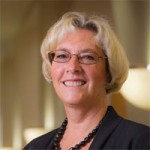This article is more than 5 years old.
Most of the Friday sessions were brief reports on various ASERL projects:
- An exciting new program is called “Liaison Librarians of the 21st Century.” It was proposed by George Mason University and was approved by the membership for further investigation and implementation, provided grant funding can be secured. It is a two year plan to create a comprehensive professional development program for liaison librarians – sort of like a continuation of the program we will have on May 12 with Carol Wittig. A consultant will be hired to design a curriculum around the needs of the modern library liaison who is called upon to interact with faculty in a number of ways as their research, teaching and learning missions evolve. The program is envisioned with lead-off and closing symposia and quarterly videoconferencing sessions in between. The Lyrasis grant staff has already begun looking for funders. I am very enthusiastic about this program and hope we will participate.
- Early meetings with leaders from the HBCU (Historically Black Colleges and Universities) yielded the idea to form recruiting teams who would tour library schools around the country and sell them on the idea of working in academic libraries in the Southeast. The idea will go back for more work and refinement.
- The “Underpinnings of the American Civil War” digital project is moving along. Erik is participating on the project for us.
- The OLE project at Duke to create an open source integrated library system is completing its scope document and will move to the “build” proposal later this spring. They are looking for partners who can invest $240,000 plus a staff member each year for two years. We are not able to make that kind of commitment, but Susan and Erik are both on OLE committees and will assess if we can serve as beta partners to test pieces of the eventual system.
- Collaborative shared storage has been discussed by ASERL for many years. Originally, ASERL institutions focused on monographs in storage, where it was found that there was remarkably little overlap among libraries. Now attention is turning to serials, where libraries can get a bigger bang for the buck. The public universities in Florida are moving quickly on a project to build a common facility and the University of Florida is ready to commit one million stored serial volumes and Florida State will add 750,000. This could be the nucleus of an ASERL program, or the first branch in the banking system, as it was put. I volunteered to serve on a small group to plan the next action steps (and will count on people like Lauren C., Carol and Scott to help when the time comes to strategize.)
- Lyrasis has many more group purchase offers available to members than existed under SOLINET. I hereby encourage Carol and Derrik to look at the Lyrasis website to see if we can take advantage of any of them.
- The Federal Library Depository Program had a meeting several weeks ago to try to instigate change in this moribund system. It has been difficult to move beyond endless talk and study to take real action. In the meantime, both regional and selective depositories (like us) are becoming increasingly frustrated at the rigidity of rules built around a now-outdated print system. The most they could think of was to mount a letter-writing campaign.
- SCOAP3: this is the attempt to introduce open access publishing in the field of physics by converting the top-quality subscription journals owned by the usual publishing suspects to open access. Emory is championing this cause with the ASERL libraries and I will want to talk to Carol, Sarah and Lauren C. again on whether we should make the pledge to support this plan.
The one subtantive program session was on SACS accreditation. Representatives from Duke, Miami and Virginia Commonwealth all gave perspectives on their recent experiences. Duke was heaviy involved in the entire 2 1/2 year planning process including the Quality Enhancement Plan. Miami was similarly involved at the highest levels of planning and turned the focus of the QEP to multimedia/information literacy. VCU’s Director has served as a SACS reviewer and outlined the responsibilities of the Offsite and Onsite review committees. SInce I have been recently approved by the university and added to the roster of potential SACS reviewers, I listened hard at this part!
The next ASERL meeting will be November 17-18, 2009 in Charleston. Can’t wait!
